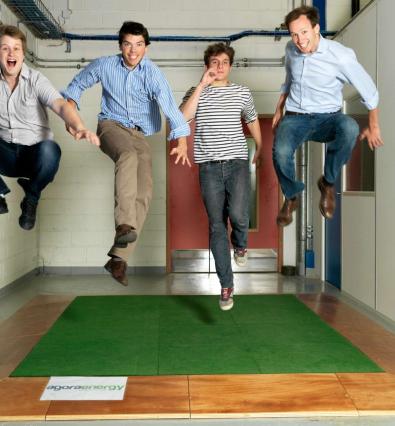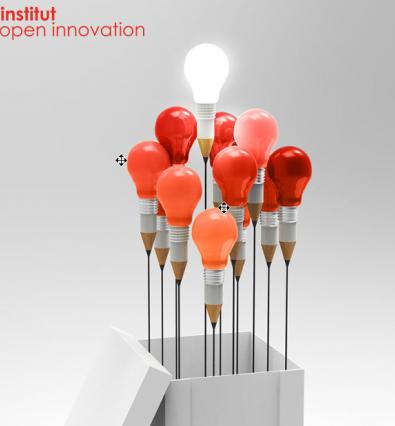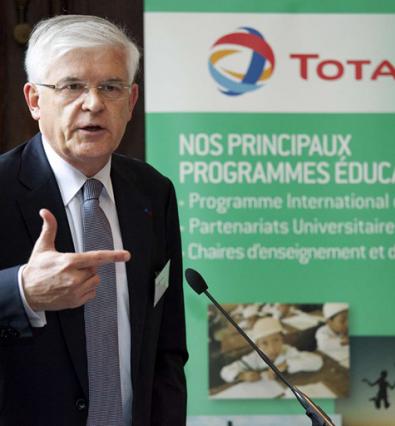Entrepreneurship in the École Centrale and Supélec context
- 1 Entrepreneurship program beginning in the 1st year of the Engineering program
- 1 elective module to be completed in the 2nd year at CentraleSupélec Châtenay-Malabry
- 2 3rd year streams:
- 1 minor option to be completed in the 3rd year at Supélec
- 1 elective module to be completed in the 1st and 2nd years at Supélec
Further details can be found at: http://www.between-entrepreneurs.com/notre-offre/lenseignement-de-lentrepreneuriat#sthash.LBcB0CXi.dpuf
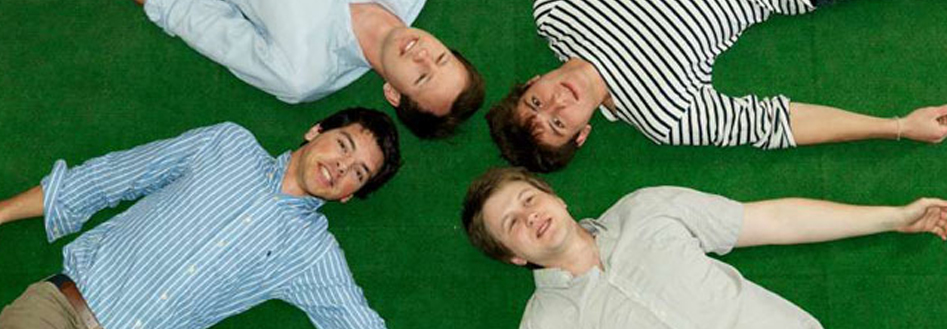
Entrepreneurship program
Objective: to move from an idea to an outcome
The school offers an experimental program to student-engineers, organized across the program for all entrepreneurs undertaking a creative project.
Moving from an idea to an outcome: students can join this program whatever year they are in, 1st, 2nd or 3rd.
The school provides an environment that is favorable to innovation and business creation: program organization, an integrated semester abroad and personalized supervision.
The program in detail
- 1st year: Students are offered complementary and in-depth modules in addition to the shared program (mathematics, thermal sciences, physics, biology, mechanics, and information sciences). Their Issues Project is integrated with their research project one day per week of work.
- 2nd year: Student-entrepreneurs devote two days per week to their creative project. Their stay abroad is chosen according to the project, either in a university placement to further complementary studies, in a start-up, or spent in international development of their creative project.
- 3rd year: Students can help to supervise 1st-year students if they wish. They join the Centrale Entrepreneurs stream and their six-month full-time end-of-engineering-studies internship is entirely devoted to developing/creating their project.
Projects can then enter the CentraleSupélec company incubator.
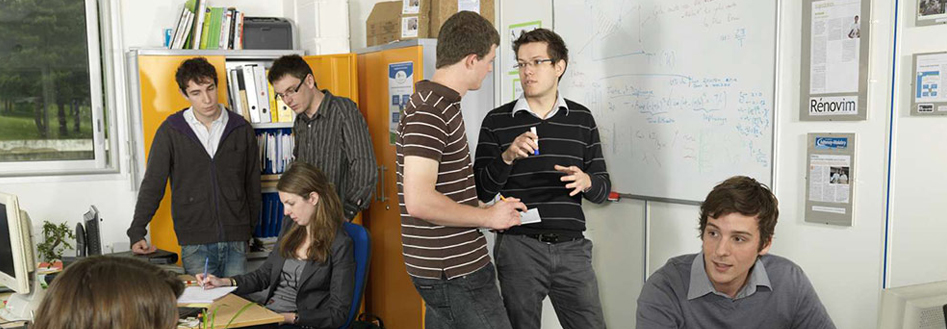
Centrale Entrepreneurs stream
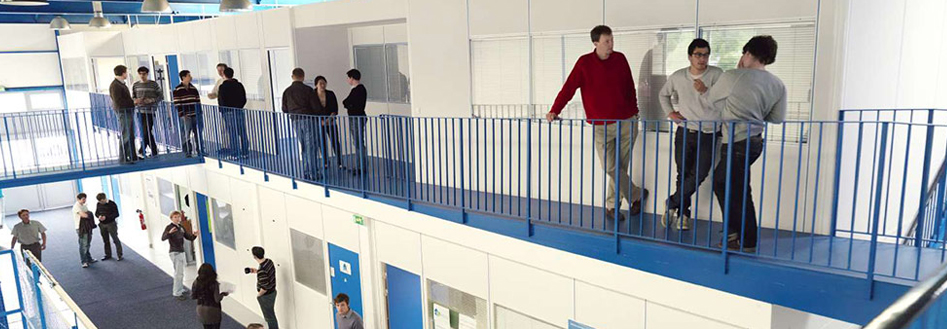
Entrepreneurship isn’t just for other people. How can you really create your own company during your studies or as soon as you finish studying? The Centrale Entrepreneurs stream helps students looking to develop their idea into something concrete. For more than seven years, the school has helped its students to create several dozen companies in France and abroad, of which 90% are still active, innovative and creating jobs.
The program offers an intense experience of personal growth during 15 months of learning how to balance freedom and responsibility.
Objectives
The Centrale Entrepreneurs stream is aimed at student engineers who:
- are conducting a company creation project or
- want to discover in practice how a company is created
This stream aims to support students in developing new strategies that are essential in their professional lives, especially so for an entrepreneur. These include:
- guiding one’s actions and professional plans
- being proactive and solution-oriented
- accepting and managing complexity (people/money/work/pleasure/social contribution, etc.)
- accepting and managing one’s emotions (fear, stress), developing self confidence
- developing autonomy
- learning to interact with others – positioning oneself, communicating better
- developing one’s creativity, proposing innovations, without forgetting rigor
- better understanding one’s own behavior and that of others
- learning to make choices and decisions
- conciliating freedom and responsibility
All of these strategies are applied to the development of a company creation project – and beyond this project, each year students create their own companies in the course of the 15 months of the stream. The end-of-studies assignment does not take the form of a classic internship within a company, but must be an environment in which the above strategies are implemented for the success of the students’ personal projects (alone or in groups), or for a project provided by external entrepreneurs.
The stream also teaches students a number of management skills necessary to an entrepreneur: strategy, marketing, finance, resource management, strategic management, sales, negotiation, etc. The stream enables students to discover the key questions and issues in each of the fields they study. Personal development is required to understand these fields in depth, especially over the course of the assignment.
Teaching
Students in this stream also complete in parallel:
- A personal project (proposed by the school or chosen by the student), which is conducted as a real creation project, assisted by a company creation coach;
- A stream-specific teaching, including two weeks spent with students of the Technology and Management Master’s, all business school graduates.
Principles and teaching approach:
- You can create a company without having any prior professional experience.
Each year, students in this stream really do create their own companies. Most of them are still developing their business today and deriving a lot of enjoyment from it. Students who choose not to create a company nevertheless gain an intense experience and acquire skills which are sought after by companies. - Becoming an entrepreneur isn’t something you learn about in books; you live it.
Autonomously managing a project – even with safeguards – for seven months, defining objectives oneself, is clearly a task which is both difficult and exciting. Discovering the emotions that it generates is an integral part of the learning process. - Experience is a virtue.
Making a mistake under supervision or succeeding alone is a much greater learning experience than learning or following instructions without really understanding why. - Information should be introduced, not overloaded.
This stream introduces students to key subjects, but does not aim to teach them an exhaustive amount of content on these subjects. Students can research further outside of studies, or ask for help if needed.
Key attitudes and behaviors
Three key behaviors are particularly developed:
- Having a detached view
- Managing relationships with others
- Positioning
on three thematic levels:
- the project
- the project leader
- others
Program
The teaching module program for the stream is as follows:
- 1st week: Special Guests Share Their Experiences Week
Several entrepreneurs come and share their experiences and respond to your questions. In parallel, principles of company creation and development are presented. - 2nd week: Financial Case Study (real)
After reviewing the notions of Finance from the 2nd year and a day of lessons given by an experienced financial director, an entrepreneur comes in to present the figures of their company and their development project: you can then propose possible solutions after working in small groups. - 3rd week: Strategic Marketing
What do clients really purchase beyond a product or service? The importance of understanding underlying needs. The notion of target approach angle and of singularity to go beyond what is comparable and to have excellent relationships with clients. - 4th week: Business Plan
What is it? What is it for? What are the relevant concepts to implement? How does a bank manager, a business angel or an institutional investor assess your application? This week combines theory with presentations from experienced entrepreneurs and financial professionals. - 5th week: Operational Management
Action plans, time management, team management. How to reconcile long-term strategy and the first short-term actions? How to concretely advance when you don’t yet feel legitimate? - 6th week: Sales/Negotiation
Some theory, lots of practical exercises. Filmed exercises and debriefing with a sales expert. - Entrepreneurial Project: Immersion
- In late April, students in the stream begin work on their company creation project instead of an end-of-studies internship. Some will collaborate with others (within the stream, with other students from the Écoles Centrales or other schools, or even with more experienced professionals), while others prefer to work alone. The aim is to implement what they have learned in lessons (as described above) and increase the “Action/Reflection” ratio. This means actually immersing themselves in the marketplace to meet potential clients, suppliers and partners, and to validate or explore prior hypotheses, taking all this new information into account to iteratively adjust their action plans and increase the viability of the project. This immersion phase of the entrepreneurial project is a key fundamental learning stage of the stream. As such, it is not compatible with the completion of a Research Masters or a Specialized Masters (which would shorten this project).
- During this project, participants can take advantage of:
- coaching and supervision over time (generally by a company creator)
- development day (communication workshops; RH approach, etc.)
- meeting with experts according to needs
- Two juries
At the beginning of July and beginning of December, participants come and present an overview of their work to a jury of company creation professionals. As well as obtaining a grade which contributes to completion of the stream, these juries help students to take a step back and leave with lists of recommendations (each member of the jury completes a sheet), which are very useful for seeing how the project is perceived and to identify areas for improvement.
Innovative Systems Design and Development stream

We have definitively entered the era of an intensive and systematic innovation economy. Companies must constantly renew their product and service offerings to meet the new needs of their clients and to do even more to surprise and attract them.Design is essentially multidisciplinary, and the result of a design process is a sound compromise among several criteria. The innovative design of complex products and services requires a structured industrial approach which still leaves room for a multidisciplinary group to be creative.
Stream website:www.fci.ecp.fr
Objectives
The stream trains students to work in new product and service launches, i.e. innovative design and industrialization careers.
The aim is to train students to become computing engineers and architectural engineers or to assemble complex systems within a design-industrialization project. Students must gain the right tools, reasoning, action strategies and problem resolution processes to be able to understand and bring about industrial innovation.
To do this, focus is placed on tools and approaches to digital engineering that represent solution architectures, simulation/calculation and dimensioning, as well as collaborative engineering for managing processes, documents and milestones in the project.
The major issues relating to industrial design are also addressed: analyses of the markets, needs and uses; design of reliable and robust systems; quality, targeted and systematic innovation; industrial knowledge management and managing an innovation project; and cost and risk management.
Teaching
The program offers a balanced teaching syllabus, punctuated by:
- Acting in scenarios in the form of five-day workshops where students are actors in a concrete innovative product/service/economic model team project; this is the opportunity to undertake a project as it would be conducted in a company, supervised by experts in their fields and assessed by a jury of professionals;
- Interactive lessons and presentations to introduce approaches, methodologies and generic tools relating to innovation and design processes in business;
- Speakers from different sectors talk about specific issues relating to automobiles (organization, issues, and competition), aeronautics (multiphysics simulation, weight reduction and cost), construction (regulations, practices), the aging population (customer needs, emerging markets), industrial design (attitude, multidisciplinary collaboration), and more;
- Industrial speakers to share the experiences of business actors in strategy, operational processes and innovation and design jobs, along with their personal experiences.
Program
The program focuses on practical experience, with 60% of action in scenarios during intensive workshops and 60% of lessons given by company executives and entrepreneurs.
Acting in scenarios
Three workshops over five days, in November, February and April, following the stages of innovation and development. You select three from a choice of 14.
- One Problem Solving workshop to select from a choice of five:
- Industrial Design (e.g.: designing a new stool-table for a party)
- Radical Innovation (e.g.: prepare scenarios of use for a computer tablet for seniors)
- Bio-inspired Design (e.g.: invent new products and services inspired by nature)
- Service Design (e.g.: revolutionize mobility services)
- Eco-design (e.g.: improving a kettle to reduce environmental impact)
This workshop generates a useful analysis of the problem in order to create value, to propose creative new utilization scenarios and concept solutions.
- One Prototyping workshop, to be chosen from five:
- CAD Prototyping (e.g.: computer tablet shelf support)
- Mechatronics (e.g.: electrification of a competition go-kart)
- IT (e.g.: developing a smartphone app)
- Universal Design (e.g.: solution for elderly pedestrians in town)
- New Communication Technologies (developing Open Source solutions with an École Centrale Paris incubated company)
- One Complex Systems and Collaborative Work workshop to select from a choice of four.
This consists of simulating a multi-trade project in acceleration mode, working in competing groups of six people. The four workshops explore: designing part of an electric racing car, developing manufacturing processes for a Dassault Aviation Falcon part, launch of an innovative banking service, and the design and parametric optimization of a family of products. This requires learning about a collaborative design platform and management and synchronization of business processes by integrating “innovation areas” to arrive at a satisfactory compromise using compromise and optimization techniques.
The two other lesson/conference modules of the stream:
- Knowledge of companies and industrial sectors
- Self-knowledge and industrial careers
Le partage d’expérience :
Halfway through the internship (in early September), students spend a week together for Experience Feedback, to share and exchange with each other about their experiences and objectively assess their project in the company and the results expected from them for their end-of-studies presentation and preparation for their first job.
This is also an opportunity to share your experience with new students.
Débouchés professionnels
The industrial sectors targeted are vast and non-exhaustive: automobile, railway, aeronautic and naval industries, the capital goods industry, luxury industry, mass markets, the process industry (metal and chemical), innovative service industries (telecom, banking, insurance, B-to-B) and services to communities.
The stream trains students for two careers that are highly sought after currently: complex systems design and innovation profiles for engineers – now called engineering innovation. The two are linked due to their contradictory natures, which require high-level understanding of both innovation-development processes within a company and mechanisms for creating value or devaluation in front of clients, and of agile management and decompartmentalization of functions within companies, as well as a systemic view and unrivalled business intelligence to make the company successful.
New innovation careers for engineers in companies are recently emerging. Innovation programs and innovation management functions are currently inserted between research and engineering or development projects. These jobs require an excellent understanding of both opportunities and technological investments, and the knowledge/skills needed in companies in order to manage research projects, skills and careers, as well as to identify clients, markets, competitors and potential partners. Types of vertical open innovation (universities, clients) and horizontal open innovation (partners, including suppliers, subcontractors and even competitors) should be understood and used in a new way (crowdsourcing is one popular method: users give ideas in real-time).
Professional profiles are traditionally:
- Project Manager or stakeholder in a complex systems design project
- New Product or New Service Launch Project Manager
- Architectural Engineer, Computing Engineer
- Industrialization/Development Project Manager
- Purchasing Director
- Innovation Director
- Quality Director
Entrepreneurship, research and innovation. This program is offered on the Gif-sur-Yvette campus
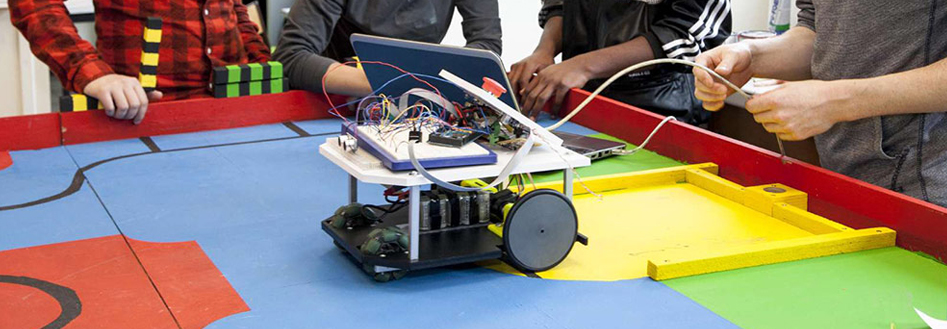
Today, research is a global activity that requires many qualities and skills: a spirit of innovation and creativity, scientific rigor and open-mindedness, as well as communication and management skills.
But while a researcher is supposed to have ideas and to innovate, they can also, at the end of their work, promote their discoveries and create their own company or start-up. To do this, they must develop a taste for risk-taking and being proactive.
In this minor option, through successful knowledge transfer experiments, in view of commercializing products, we offer students the opportunity to explore entrepreneurial research programs and the processes for creating a start-up or company from research. Management tools and intellectual property, as well as ethics and sustainable development are all covered in this program. Upon completion of this module, participants will have acquired the knowledge and tools to achieve scientific results and gather technical intelligence.
Program
Introduction
- 6 conferences given by external speakers, researchers and company creators
- 1 conference on intellectual property (patents, research contracts).
Elective modules in 1st and 2nd years of the Supélec Engineering program
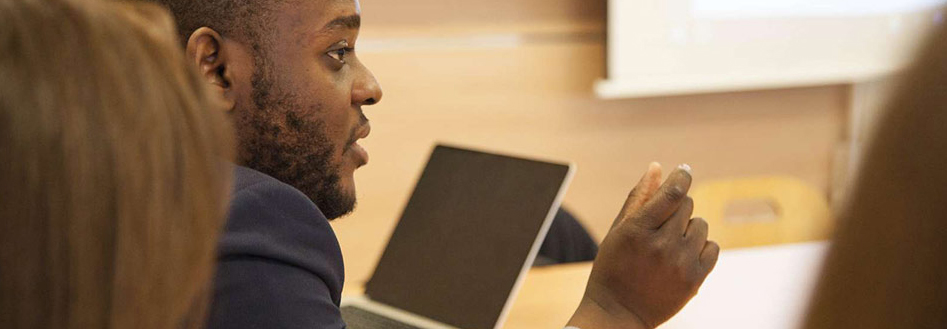
Awareness about entrepreneurship is raised over the course of four independent elective modules equating to 18 hours each, open to students in the 1st and 2nd years. These enable students to better understand all stakeholders involved in creating or taking over a company, and to master the tools they use.
This provides students with the means currently used and enables them to position themselves better to present their company.
Program
Start-up and innovation, clientele, venture capital, banking, business incubators, OSEO funding, marketing, business angels, business plan, business model, patents, accounting, regulations, contracts and guarantees.


